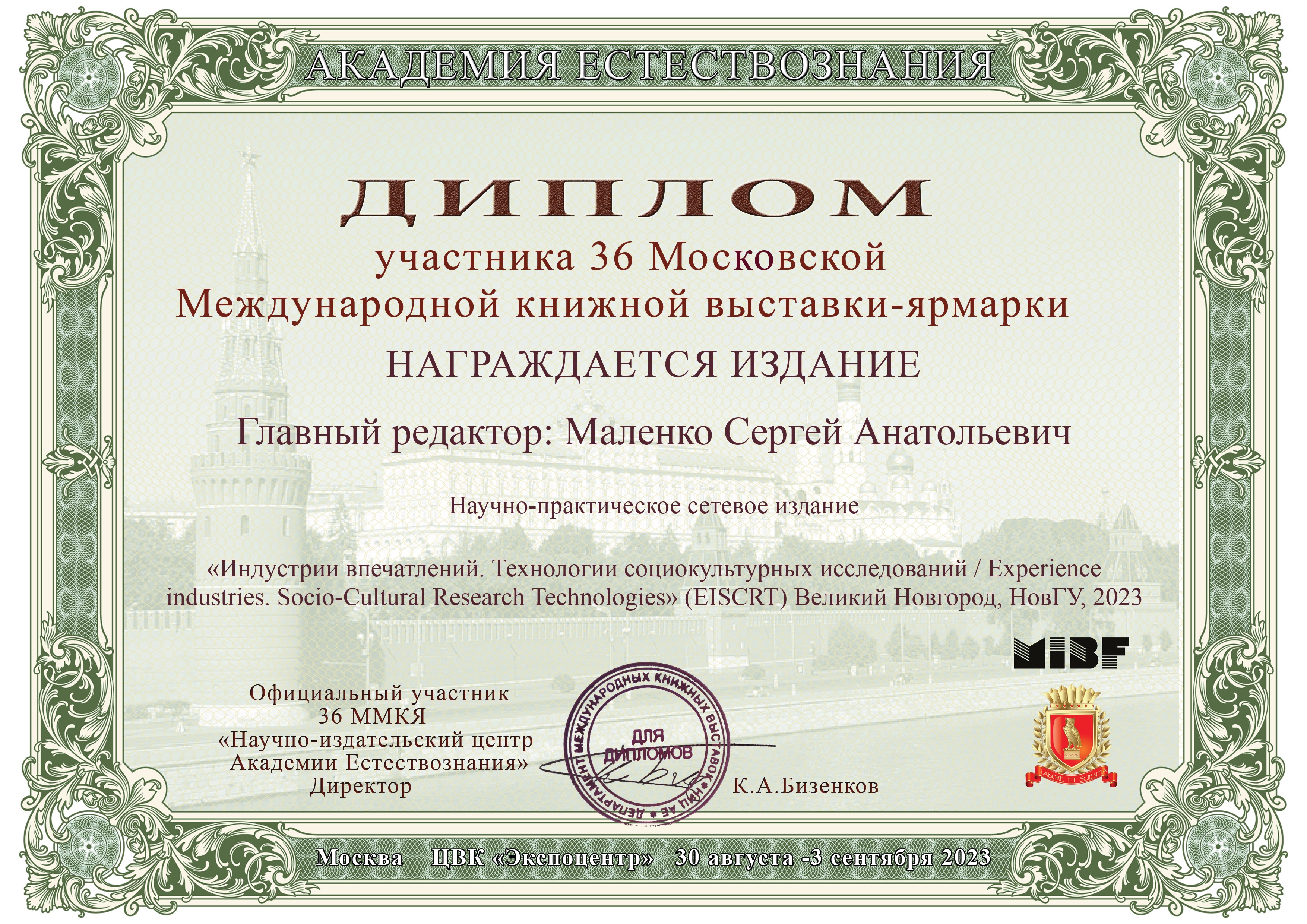ФИЛОСОФИЧНАЯ ПОЭТИЧНОСТЬ ЭКЗИСТЕНЦИАЛЬНОГО КОШМАРА, ИЛИ ШЛЯГЕРНЫЕ СТРАСТИ ВОКРУГ «ТРЕТЬЕГО СЕНТЯБРЯ»
DOI:
https://doi.org/10.34680/EISCRT-2023-4(5)-87-112Ключевые слова:
популярная культура, песня «Третье сентября», эмоциональный строй, философичная поэтичность, информационно-символическое пространствоАннотация
Объектом исследования избрана популярная в России с 1993 года песня «Третье сентября» (композитор И. Крутой, автор текста И. Николаев), ставшая визитной карточкой М. Шуфутинского. В качестве методов исследования избраны экзистенциальный, аналитический и семантический. В результате анализа выяснилось, что полюбившаяся композиция до сих пор присутствует в музыкальных ротациях и ее слушают уже несколько поколений людей, для многих из которых она стала главным символом расставания и несостоявшейся любви. Несмотря на банальность текста и запоминаемость основного мотива, в хите обнаруживаются вуалированные черты, раскрывающие экзистенциальные состояния и переживания героя. Именно в философичной поэтичности, позволяющей передать экзистенциально-онтологическую ситуацию расставания и связанные с ней эмоции, видится причина популярности анализируемой композиции. Этот тезис находит подтверждение в ключевых словах текста шлягера и музыке, совокупно образующих смысловое информационно-символическое пространство. Возможно, авторы, бессознательно-спонтанно и эмоционально-вдохновенно осуществляя творческий процесс, до конца не осознавали смысловой насыщенности песни. Как мы считаем, именно философичная поэтичность стала одной из составляющих, способствующих многолетий популярности песни.
Для цитирования статьи:
Яковлева, Е. Л. (2023). Философичная поэтичность экзистенциального кошмара, или шлягерные страсти вокруг «Третьего сентября». Индустрии впечатлений. Технологии социокультурных исследований (EISCRT), 4 (5), 87-112. https://doi.org/10.34680/EISCRT-2023-4(5)-87-112








